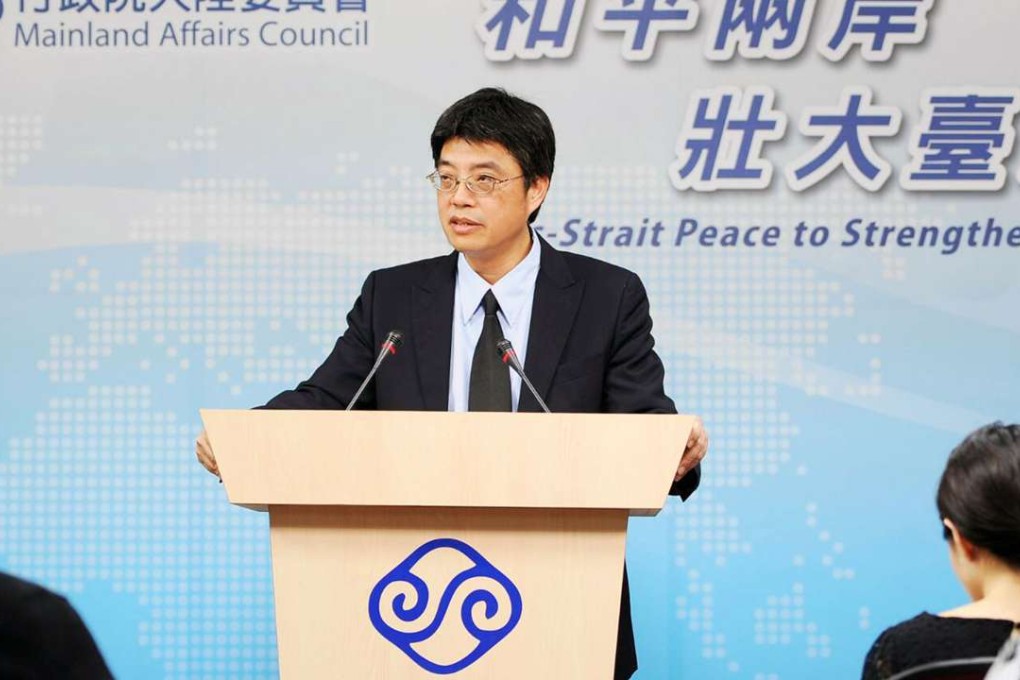Taiwan calls on Beijing to reopen dialogue to pave way for peace deal
Keeping channels for communication open should not depend on preconditions, Mainland Affairs Council spokesman says

Taiwan’s top agency in charge of mainland relations has called for a reopening of communication with Beijing to pave the way for a cross-strait peace agreement, the first time the independence-leaning party has expressed such a hope since coming to power in May.
Mainland Affairs Council spokesman Chiu Chui-cheng said Taipei hoped to resume communication with Beijing through channels set up by the main opposition Kuomintang party. Keeping avenues for dialogue open should not depend on preconditions, he said.
We understand Beijing has core interests to uphold, but it also needs to positively understand the policies of the Democratic Progressive Party
“We understand Beijing has core interests to uphold, but it also needs to positively understand the policies of the Democratic Progressive Party and Taiwan’s mainstream opinion. It’s unfortunate for Beijing to unduly exaggerate or negatively interpret it,” Chiu said.
The DPP wanted to move towards a peace agreement with Beijing, he said. The party had not previously mentioned striking a peace deal with the mainland, although the idea had been floated by the previous KMT administration.

Since taking office in May, Taiwanese President Tsai Ing-wen has refused to endorse the 1992 consensus, the basis for cross-strait ties, which says there is one China and each side can interpret what “China” means.